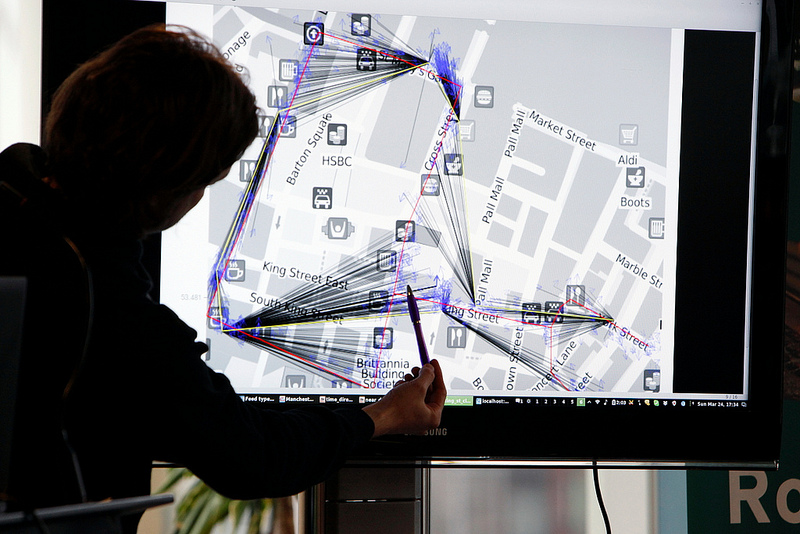Open Infrastructure - Tools for Smarter Citizens
This year the Future Everything conference focussed on three core themes: creative code, future cities, and the data society. In one of the final sessions (The Bespoke Smart City), keynote speaker Anthony Townsend set a challenge to the audience. He asked whether ‘smart’ techniques were transferable from city to city, given that each city has it’s own unique context. This article is a response to that question: I believe that there exists a set of processes and standards that may be replicated from place to place.

One of the resounding messages from the conference was that smart cities are really a product of smart citizens. This is an idea close to my heart. I have written before about the need for people-managed places.
The top-down model of the smart city being advocated by technology corporations begins with a peculiar premise: that the city can be controlled. The engineering metaphor of a ‘smart city cockpit’ provides an illusion of centralised power but totalitarian control doesn’t make people smart.
In reality cities are organic and messy. To make them smart we need to share information that citizens can use, not to capture data about people without their consent.
There exists a standard for sharing information openly so that everyone can use it: it’s called the internet. We do not need proprietorial technology platforms or urban operating systems.
Here are some examples of good projects:
- Shared space is a design principle which seeks to minimise the demarcations and barriers between pedestrian and vehicle traffice. The idea is that these barriers create risk compensation whereby road users act with less caution because the perceive a lower degree of risk. From a smart-citzens perspective, the urban planner has done their thinking for them. The shared space approach considers people to be intelligent and, if the possibility of danger is present, then people will be more cautious.
- Xively (previously Pachube/ Cosm) is a platform for connecting and sharing data to/ from the internet of things. Essentially this is an infrastructure for the physical city to talk to it’s citizens.
- Open 311 is a collaborative model and open standard for civic issue tracking. It’s a protocol for reporting problems to your local council. As a standard, economies of scale can be reached and the tools built around the platform may be shared from place to place.
- Open Trip Planner is a open source platform for multi-modal trip and itineray planning and analysis. It is based upon Open Street Map and the (open) General Transit Feed Specification. It offers route planning, real time updates of delays/ disruptions, and analysis of coverage/ travel times etc.
- The City Service Development Kit is a toolkit for the development of digital services in cities. The tools build on top of Open Street Map and Open 311 to provide a Linked Open Data API.
The common theme here is that these projects adopt open standards which allow us to learn from others and add our efforts to a common purpose. The tools themselves build around common standards and so may be customised to suit the specific context of each city (i.e. in terms of it’s open street map layout).